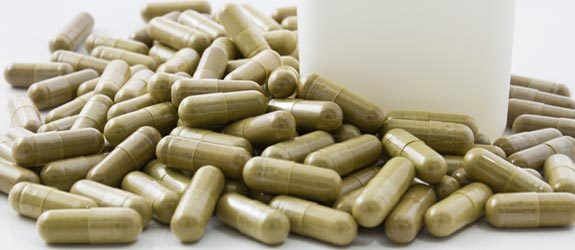
Advertisement
Multivitamins have come under attack in recent years on the grounds that they are at least ineffective, and at most, dangerous. These concerns have only intensified recently. A group of Australian scientists claim they have conclusive proof that a common ingredient in multivitamins, chromium, is converted by the body into cancer-causing chemicals.
The scientists recently published their findings in the journal Angewandte Chemia. The research, conducted by the universities of Sydney and New South Wales, demonstrated that living cells convert chromium III into its “carcinogenic cousin” known as hexavalent chromium.
Specifically, the Australian scientists shot chromium III into the fat cells of animals. They then analyzed the chemical constitution inside the cells with a top of the line X-ray beam at a synchrotron facility. The device enabled the researchers to see whether the chromium spots sprinkling the cells were carcinogenic or non-carcinogenic.
A hard pill to swallow
“We were able to show that oxidation of chromium inside the cell does occur, as it loses electrons and transforms into a carcinogenic form,” University of New South Wale’s (UNSW) Dr. Lindsay Wu said. “It’s the first time anyone’s seen it in a cell,” he added.
Wu went on to note that more research needed to be conducted to determine if the supplements significantly increase the risk of cancer. Nevertheless, he said their findings should caution anyone taking chromium pills for the long-term or in high amounts. It can take decades for tumors to develop in people exposed to cancer-causing chemicals.

Chromium is a trace mineral present in nutritional supplements, some of which contain 500 micrograms per tablet. Health authorities add people should only take chromium supplements if they have a deficiency, and don’t recommend them for weight control.
The Australian National Health and Medical Research Council’s Nutrient Reference Values, which are currently under review, recommend 25-35 micrograms of chromium daily for adults. Multivitamins have more than five times that amount. Regardless, Australian vitamins company Blackmores, which offers supplements with chromium III, maintains their multivitamins are beneficial to human health.
“This study makes no meaningful contribution because the researchers injected chromium directly into fat cells that were not even animal or human cells,” said a Blackmores Institute spokeswoman.
“Other published studies show that chromium does not easily transfer into cells, and instead is stored or excreted.” she added.
Professor Lay said the study used fat cells derived from mice, which are usually reserved to test drugs for diabetes.
Why multivitamins don’t work
But why are multivitamins inefficient? According to Vital Formulas’ founder, Natalia Lukina, there are three reasons why multivitamins do not work:
“The first is that some vitamins and minerals inhibit absorption of each other many fold when taken together,” she writes. “The second is that fat-soluble vitamins and micro-nutrients need the presence of fat to be absorbed well. And finally, some vitamins and minerals have an energizing effect on the body and others have a relaxing effect. Conventional formulations of multivitamins do not take these facts into account.”
In other words, the body absorbs relatively few vitamins and minerals packed into a multivitamin. A sufficient amount of fat or fat-soluble vitamins, like vitamins A, E, D, and K, as well as micro-nutrients, like carotenoids and Co-enzyme COQ10, are needed to be absorbed by the body.
The inability of the body to properly absorb multivitamins could be a blessing in disguise in wake of the recent research on chromium. Although researchers agree multivitamins can be beneficial for those with a deficiency, nothing can substitute the vitamins and minerals found in an all-natural diet.
Sources include:
(1) TheAustralian
(2) NaturalNews.com
Submit a correction >>
This article may contain statements that reflect the opinion of the author
Advertisement
Advertisements















